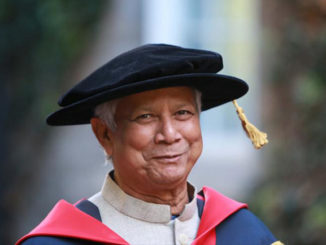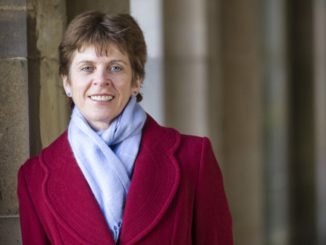
[dropcap]D[/dropcap]CU Amnesty Society and Feminist Society hosted a virtual event to raise awareness of women’s welfare, the important discussions around sexual health that aren’t happening, and what life in university is like for young women.
DCUSU VP for Welfare and Equality Dean O’Reilly and VP for Education and Placement Chloe McMorrow were both in attendance at the event, where they discussed what life on campus is like for women and what supports DCU has in place to keep female students safe.
The biggest conversations of the event centered around sexual harassment, sexual health, and the stigmas that surround it.
The Sarah Everard case in the United Kingdom has triggered a worldwide conversation on sexual harassment, sexual assault, and women’s general safety in day-to-day life. An issue discussed at the welfare event is security for women on-campus. On the DCU campus, there is no specific safety group beyond campus security.
The DCUSU representatives and the hosts of the event had an open discussion on the supports in place at DCU for women if they are in an uncomfortable position. The ‘Ask for Angela’ campaign was set up for students who were in Nubar, the on-campus bar, and were in a situation that was making them uncomfortable. The student could approach the bar and ask a staff member if Angela was working and the staff member would get the student out of the situation.
The SU also sits on a committee called the Ending Sexual Violence and Harassment working group, which is a framework for higher-level institutions set up by the Department of Higher Education for ending sexual harassment at third level.
DCUSU VP’s Dean and Chloe sit on a working group in DCU that implements the sexual harassment framework at a localized level with other DCU staff and security. According to the VP’s, a lot of new conversations are being had within this committee on sexual harassment that hasn’t been brought up before and are starting new conversations, like on the issue of prosecution.
Women’s Aid stated that 1 in 5 young women experience some form of intimate relationship abuse, including online abuse, with over half of young abuse victims experiencing it before the age of 18.
According to the SU representatives present at the event, there are supports available for students who say they are going through a domestic violence case, an abusive relationship, or a toxic relationship.
The first protocol is the general counselling services in DCU, from there the student would be transferred onto the next step. A lot of counsellors in the DCU counselling service are specifically trained in trauma counselling. Depending on the case of domestic violence, there may be counsellors in DCU who can provide the right assistance.
Speaking at the event, DCUSU VP for Welfare and Equality Dean O’Reilly said: “There really hasn’t been an expanded conversation around healthy relationships, toxic relationships, domestic abuse, domestic violence.
“I think the conversations have been very limited to women being the victim of domestic violence, obviously we know the rates are far higher for women being victims than men, but there are men as well that are victims.
“I don’t feel that conversation is being touched on much. And when we talk about domestic violence there’s only really conversations around physical abuse and never on other forms of abuse, like cohesive control, etc”.
Period Poverty was also discussed at the event and how this issue still faces stigma, with the conversation surrounding period poverty continuing to grow and the awareness increasing, however, access to free period products is still difficult. As the SU hoped to expand the pregnancy test delivery services to include period products but was unable to do so this year.
Another issue the SU representatives raised at the event was around the increased attendance at the consent workshops organised by the SU at the beginning of semester one, where students were educated on the topic of consent and its importance.
Consent is where there is free and voluntary agreement to engage in a sexual act with someone else. It is a crime to engage in a sexual act with someone who has not given consent. This law is set out in the Sexual Offences Act 2017.
DCU provides consent workshops to all first years, this year due to Covid-19, the consent workshops were held online and received a higher rate of attendance than previous years.
Speaking at the Women’s Welfare event, Education and Placement VP Chloe McMorrow said: “Consent training went way better this year than ever before”.
Each year around 500 or 600 students attend the consent workshops. However, this year roughly 2,300 students attended the online workshops, which were held for the first years during orientation week. “Normally it’s really disproportionately weighted towards girls doing it [consent workshops], which is unfortunate, but this year there was a much better balance.”
“Getting more people aware of the conversation was definitely more valuable.” Said McMorrow
DCUSU wants to push for consent classes to become mandatory for all first years.
If you have been affected by anything mentioned in this article you can contact the following services:
DCU Counselling: DCU students can avail of free counselling and support by emailing: counselling@dcu.ie.
Women’s Aid: Women’s Aid provides a national freephone helpline, which covers confidential information, support, and understanding to women in the Republic of Ireland. They also provide guidance to anyone who has concerns about a person, by contacting: 1800 341 900.
The Dublin Rape Crisis Centre: DRCC operates a national helpline for any victims of harassment, assault, and rape. Freephone: 1 800 77 8888.
Shauna Burdis
Image credit: Americanoutlook.com



